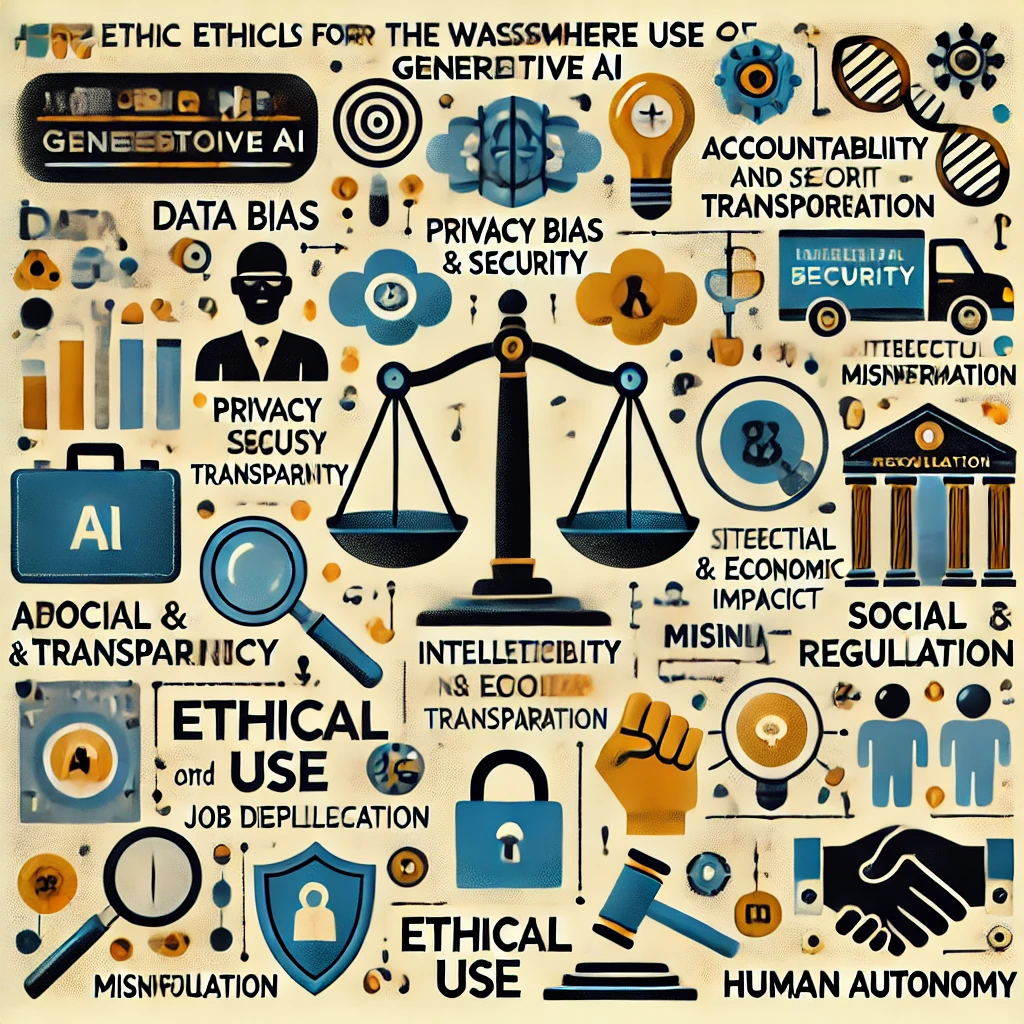
The widespread use of generative AI brings a range of ethical considerations that need to be carefully addressed to ensure responsible and fair deployment. Here are some key ethical considerations:
- Bias and Fairness:
- Data Bias: Generative AI systems can inherit biases present in their training data, leading to biased outputs that may reinforce stereotypes or discriminate against certain groups.
- Fairness: Ensuring that AI systems treat all individuals and groups fairly and do not perpetuate or amplify existing inequalities.
2. Privacy and Security:
- Data Privacy: Generative AI models often require large amounts of data, raising concerns about the privacy of the individuals whose data is used.
- Security Risks: There is a risk of sensitive information being inadvertently generated or exposed, as well as potential misuse of AI for malicious purposes such as generating fake news or deepfakes.
3. Accountability and Transparency:
- Accountability: Determining who is responsible for the actions and outputs of generative AI systems, particularly in cases of harm or unintended consequences.
- Transparency: Making AI systems understandable and transparent to users, including how they work and how decisions are made, to build trust and allow for scrutiny.
4. Intellectual Property and Ownership:
- Content Ownership: Questions about who owns the content generated by AI, particularly when it is created using data from various sources.
- Intellectual Property: Ensuring that the use of data and content respects existing intellectual property laws and the rights of original creators.
5. Social and Economic Impact:
- Job Displacement: The potential for generative AI to automate tasks and displace jobs, leading to economic disruption and the need for new forms of employment and training.
- Societal Impact: The broader impact on society, including the way information is created and consumed, and the potential for AI to influence public opinion and behavior.
6. Misinformation and Manipulation:
- Fake Content: The ability of generative AI to create realistic but fake content, such as deepfakes, which can be used to spread misinformation and manipulate public perception.
- Trust in Information: The challenge of distinguishing between real and AI-generated content, potentially eroding trust in information sources.
7. Ethical Use and Regulation:
- Ethical Guidelines: Developing and adhering to ethical guidelines for the development and use of generative AI to ensure it is used responsibly and for the benefit of society.
- Regulation: Implementing appropriate regulations to oversee the use of generative AI, ensuring it aligns with societal values and legal standards.
8. Autonomy and Human Agency:
- Human Control: Ensuring that humans remain in control of AI systems and that AI does not undermine human autonomy or decision-making capabilities.
- Consent and Participation: Respecting the consent and participation of individuals in the data used to train AI models and in the deployment of AI systems that affect them.
Addressing these ethical considerations requires collaboration between AI developers, policymakers, ethicists, and society at large to create frameworks and guidelines that ensure the responsible use of generative AI.